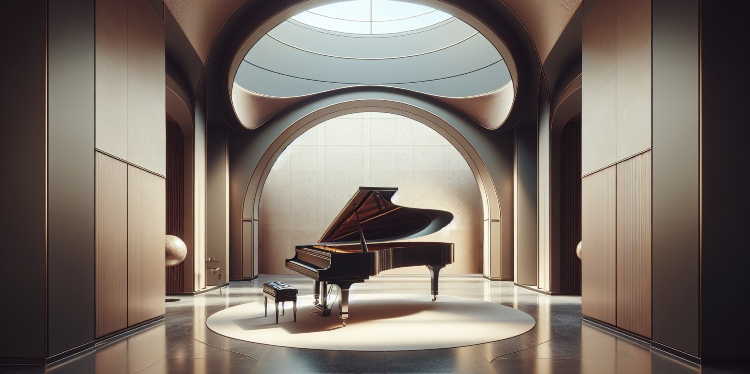Owning a grand piano is a dream for many music enthusiasts, offering both aesthetic appeal and unmatched sound quality. Selecting the right one requires careful consideration of several key factors. This guide will provide you with practical advice to help you make an informed choice.
The appeal of a grand piano lies in its ability to transform a space into a concert-worthy venue, bringing the joy of music into your home. The selection process can be daunting for first-time buyers, but understanding what to look for can ease the journey. With various sizes, budgets, and brands available, it’s crucial to align your purchase with your needs and preferences. Among the myriad options, finding grand pianos for sale that suit your specific requirements involves more than just aesthetics.
Considering the size
When considering a grand piano, size is a primary concern as it directly impacts both sound quality and spatial accommodation. Before purchasing, evaluate the room’s dimensions where the piano will reside. A smaller room might require a baby grand, while larger spaces could accommodate a concert grand, each offering different acoustical properties. Ensure that there is adequate space around the piano for maintenance and playability.
The instrument’s size also affects its tonal quality; larger pianos produce deeper and richer sounds due to longer strings and larger soundboards. However, it’s important not to compromise on space for the sake of size, as cramped conditions can hinder both the instrument’s performance and your enjoyment. Remember to factor in ceiling height and flooring type, as these influence acoustics significantly.
Placement should also consider factors such as temperature fluctuations and humidity levels in the chosen room. These elements can affect the piano’s tuning stability and longevity. Ideally, place your piano away from direct sunlight or heating vents to maintain its condition.
Budget considerations
Setting a realistic budget is vital when purchasing a grand piano. Prices vary widely depending on size, brand reputation, and craftsmanship quality. Establishing a clear budget helps narrow down options without compromising on essential features like sound quality and durability.
Consider additional costs such as delivery fees, tuning services, and potential repairs when budgeting for your purchase. It’s wise to allocate funds for regular maintenance to keep the instrument in peak condition over time. Investing in a good quality instrument at the outset may reduce long-term expenses related to repairs or replacements.
While it may be tempting to opt for lower-priced options, ensure that cost savings do not come at the expense of quality. Evaluating used pianos can be beneficial but requires thorough inspection by professionals to assess their condition accurately.
Choosing a reputable brand
Choosing a reputable brand known for exceptional craftsmanship ensures that your investment will provide lasting satisfaction. Renowned brands often have decades of experience in producing instruments with superior sound quality and construction materials.
Brands such as Yamaha and Kawai are celebrated for their reliability and consistent performance across different models. While brand recognition can guide you towards quality options, remember that personal preference in tone and touch should also influence your decision.
A well-established brand may offer better resale value should you decide to upgrade in the future. Furthermore, established manufacturers typically provide comprehensive warranties, adding an extra layer of security to your purchase decision.
Finding the right fit
The choice of a grand piano should reflect not only physical space but also musical ambitions and skill level. Beginners might opt for models offering user-friendly features that support learning progression. More advanced players may seek out instruments with nuanced tonal qualities suitable for complex compositions.
Your long-term goals in music should influence the selection process—consider whether you plan on using the piano primarily for practice or public performances. Additionally, try playing different models to gauge which instrument resonates best with your personal style.
A trial period or rental option can be beneficial if you’re uncertain about committing immediately to a specific model or brand. This approach allows you time to explore how well an instrument suits both your immediate needs and future aspirations.
Exploring available options
A diverse range of grand pianos is available from various sources including online platforms and physical showrooms. Explore local dealerships where you can test play different models firsthand—this experience often provides invaluable insight beyond online reviews alone.
Online marketplaces offer extensive selections but require diligence in verifying seller credibility before making purchases sight unseen. Look for customer testimonials or reviews when considering online sources; these often provide honest assessments of product quality and service reliability.
Visiting music stores allows direct interaction with knowledgeable staff who can offer guidance based on specific requirements or preferences you might have regarding sound characteristics or design aesthetics. Their expertise can help streamline decision-making processes significantly.
David Prior
David Prior is the editor of Today News, responsible for the overall editorial strategy. He is an NCTJ-qualified journalist with over 20 years’ experience, and is also editor of the award-winning hyperlocal news title Altrincham Today. His LinkedIn profile is here.













































































